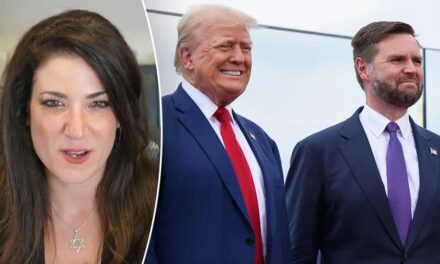In a turn of events that has left many students reeling, Columbia University experienced an unprecedented incident in one of its libraries where masked protesters took over the study space, chanting slogans in support of Hamas. Witnesses described the scene as alarming, raising concerns about safety and the environment of open dialogue on campus.
The incident occurred during a heightened time of worldwide attention on the Israeli-Palestinian conflict, which has intensified debates on college campuses across the United States in recent weeks. Students at Columbia reported feeling a mixture of shock and confusion during the protest, which they said disrupted the usually peaceful atmosphere within the library.
Many of those present expressed their disbelief that such activities could take place in an academic setting, where discourse is fundamental to the learning process. “I was studying for my exams when I suddenly heard chanting,” said one student, who wished to remain anonymous due to safety concerns. “At first, I thought it was some kind of organized event, but then I saw people with masks and realized it was a protest. It felt really threatening.”
Another student, who was reading in a nearby area, described the atmosphere as tense. “Everyone was confused. Some people were trying to ignore it, while others were filming on their phones,” she stated. “I never expected to see something like that at Columbia. It was seriously unsettling, and I didn’t know what to do.”
The masked protesters reportedly chanted slogans that expressed solidarity with Hamas, a group that has been at the center of international controversy. Their actions sparked immediate concerns regarding the safety and inclusiveness of the campus environment, compelling several students to voice their outrage on social media.
Campus safety protocols came under scrutiny as students questioned how a group could invade a public space so easily. “It’s alarming that this was allowed to happen at Columbia. It makes you wonder about the security measures in place,” a student commented, highlighting the apparent lack of intervention during the protest.
In the following days, administration officials were inundated with student complaints and requests for clarification regarding the university’s policies on protests and demonstrations. Many students feared that the incident illustrated a growing intolerance for differing viewpoints, especially concerning sensitive topics like the Israeli-Palestinian conflict.
In response to these events, a university spokesperson released a statement underscoring the institution’s commitment to free speech while also stressing the importance of maintaining order on campus. “Columbia University values the rights of all students to express their opinions passionately and respectfully. However, safety and security are paramount, and we are investigating the circumstances surrounding the protest,” the statement read.
The incident sparked a broader discussion on social media platforms, where students and alumni expressed varying opinions about free speech and the limits of protest. Some argued that the masked nature of the protesters was a violation of the principles of open dialogue and discourse that define academic institutions. “If you are going to voice an opinion, do it with your face visible. Hiding behind a mask is cowardice; it’s not how you have meaningful conversations,” argued one alumni on a popular platform.
Conversely, other students emphasized the protesters’ right to express their views, regardless of how unsettling that might be for others. A student activist stated, “All voices need to be heard, especially those that are usually marginalized. We have to respect that, even if it makes some uncomfortable.”
This incident is not isolated; universities across the U.S. have seen a rise in campus protests tied to discussions around Israel and Palestine, reflecting deep divisions within the student body regarding these issues. The dynamics of such discourse often lead to polarized positions, requiring institutions to navigate the complexities of free speech while fostering an inclusive environment.
As discussions continue, many student groups are planning town hall meetings to address concerns regarding safety and free speech. The aim is to create a platform where students can express their thoughts in a manner that fosters understanding, rather than divisiveness. “We need a space where we can come together and talk about these issues without feeling threatened,” said a member of a student dialogue group.
Furthermore, faculty members from various departments are weighing in on the incident, advocating for the need to educate students about the importance of peaceful protest and respectful discourse. “Universities are places for sharing diverse viewpoints and managing conflicts of opinion. We must uphold these ideals even when tensions run high,” remarked a sociology professor during a recent lecture.
The university reassured the community that they would continue to monitor the situation and work towards improving campus safety measures. But it also faces criticism for possibly taking inadequate action in the face of growing unrest surrounding polarizing topics.
The library takeover has driven home the complex and often contentious nature of student life in today’s universities. While many students are eager to engage in discussions about pivotal global issues, instances like the library protest underscore the necessity for safe environments where all opinions can be shared without intimidation.
The unsettling experience of the library protest remains fresh in students’ minds as they navigate their academic lives and seek to ensure their campus remains a place of learning rather than of fear. Whether through organized discussions or through supportive networks, students are determined to confront these challenges head-on, reaffirming their commitment to create a community that respects diverse opinions while promoting safety and civility.
Ultimately, the experience represented a unique moment in Columbia University’s history—a sign of the times that reflects wider societal debates and the challenges that accompany them. The hope is that, through dialogue and mutual understanding, the campus will emerge stronger and more resilient in the face of such incidents in the future.
































